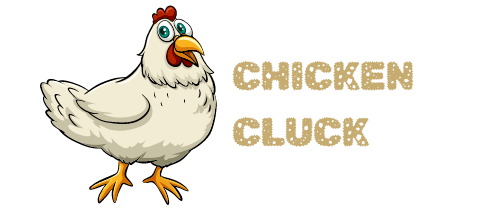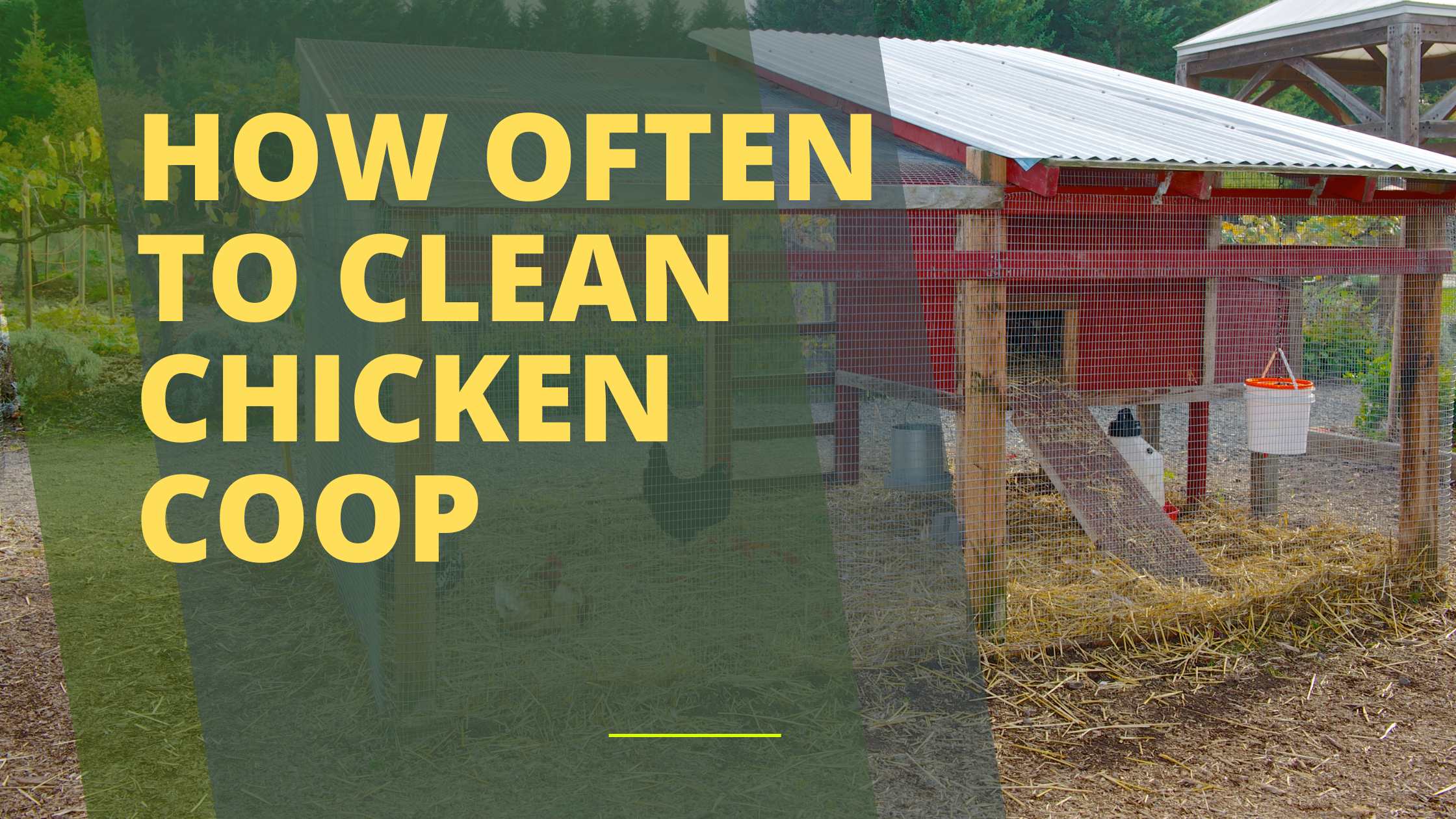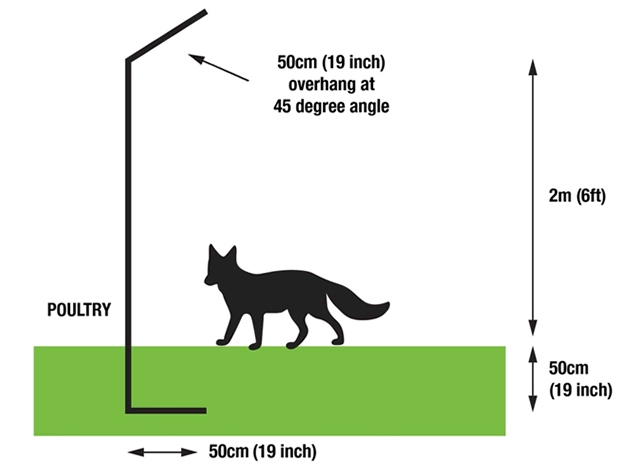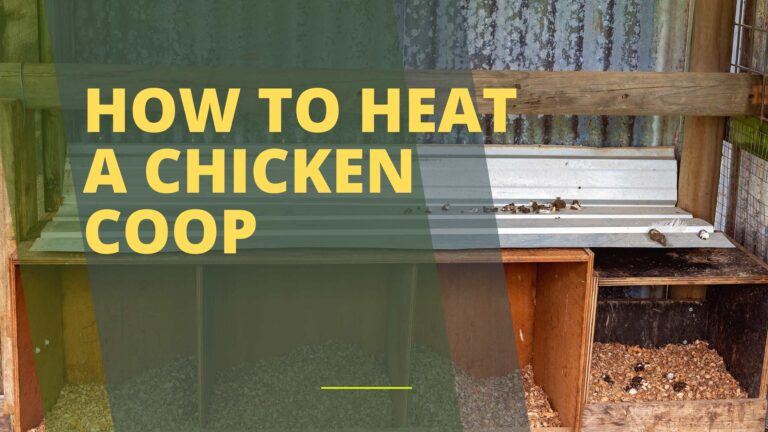Clean your chicken coop thoroughly every six months; spot clean as needed weekly. Maintaining a regular cleaning schedule is crucial for poultry health.
A clean coop ensures the health and happiness of your backyard chickens, preventing the spread of disease and parasites that can thrive in dirty environments. It boosts their immune system and increases their productivity, especially in egg-laying. Additionally, a well-kept coop minimizes unpleasant odors and discourages rodent infestations, which pose a risk to your flock’s well-being and food supply.
How Often to Clean Chicken Coop? By investing a little time each week and planning for a biannual deep clean, you create a sustainable and hygienic home for your poultry, thereby securing not only the wellness of your animals but also the quality and safety of the eggs they produce.
The Importance Of A Clean Chicken Coop
Maintaining a clean chicken coop is crucial. Not only does it affect your chickens’ health, but it also impacts their productivity and your backyard’s overall hygiene. A dirty coop can attract pests and diseases, while a clean environment promotes happier and healthier hens. Let’s dive into the reasons why a spotless habitat is essential.
Health Benefits For Chickens
A clean coop equals healthy chickens. Regular cleaning prevents bacteria and ammonia build-up, which can cause respiratory problems in birds. Fresh bedding ensures chickens have a dry, comfortable place to rest, which is essential for their well-being. Here’s how clean coops benefit chickens:
- Reduces stress, leading to better egg production.
- Prevents foot injuries and infections caused by dirty flooring.
- Supports strong immunity due to a cleaner living environment.
Pest And Disease Prevention
Mites, lice, and rodents can wreak havoc in a chicken coop. Not only do these pests cause distress and disease among the flock, but they also may pose a risk to human health. Regular coop cleaning disrupts the lifecycle of pests, making it less inviting for them to take up residence. By staying vigilant with cleaning, you can create a fortified barrier against the following intruders:
| Pest/Disease | Prevention Method |
|---|---|
| Red Mites | Clean roosting bars and nesting boxes often. |
| Chicken Lice | Regularly replace bedding material. |
| Rodents | Keep feed in secure containers and spaces tidy. |
By focusing on the cleanliness of your coop, you create a thriving environment for your chickens, optimized for their health and productivity. Aim for a periodic deep clean and establish a routine for removing waste and leftover feed. Your feathery friends will thank you!

Credit: www.harvesthomesteaders.com
Regular Cleaning Vs. Deep Cleaning
Regular Cleaning vs. Deep Cleaning: Keeping a chicken coop clean ensures the health and happiness of your backyard chickens. Regular cleaning and deep cleaning serve different purposes, and it’s crucial to know when to perform each.
Basic Weekly Maintenance
Maintaining your chicken coop each week prevents the buildup of droppings and dirt. Follow these simple weekly tasks:
- Remove droppings: Use a scraper or putty knife to clean off perches and nesting boxes.
- Check for pests: Look for signs of mites, lice, and other pests.
- Refresh water: Clean and refill water containers to prevent algae and bacteria growth.
- Top up bedding: Add fresh straw or wood shavings as needed.
Monthly Thorough Cleanings
Once a month, a more thorough cleaning is necessary. Here’s a checklist for monthly maintenance:
- Empty the coop: Remove all chickens and coop bedding.
- Scrub surfaces: Use a chicken-safe cleaner on all coop surfaces.
- Rinse and dry: Rinse the coop thoroughly and let it dry completely.
- Replace bedding: Lay down a fresh, thick layer of bedding.
- Inspect coop: Check for damage or areas needing repair.
Identifying Signs That It’s Time To Clean
Keeper of backyard chickens, mark your calendars! Not just for the egg collection but also for coop cleaning. Chickens thrive in a clean environment. Here are clear signs that it’s time to grab your cleaning tools:
Odor Levels And Ammonia
Foul odors are a red flag. A healthy coop should not knock your socks off with a pungent smell. When ammonia from droppings builds up, it’s harmful. It irritates both human and chicken respiratory systems. Recognize sharp, stinging smells? It’s time for a cleanout.
Accumulation Of Droppings
Chicken droppings accumulate quickly. They are a haven for bacteria and pests. Use these visual cues:
- Droppings piling in nesting areas or roosts.
- Wet spots from droppings, indicating excess moisture.
Seeing these? Grab a shovel. It’s cleaning time.
Behavioral Changes In Chickens
Chickens tell us when something’s off. Watch for:
- Restlessness or reduced laying.
- Are chickens avoiding the coop? They know it’s due for a scrub.
Happy chickens mean regular cleaning. These behaviors signal that your feathery friends need a cleaner home.
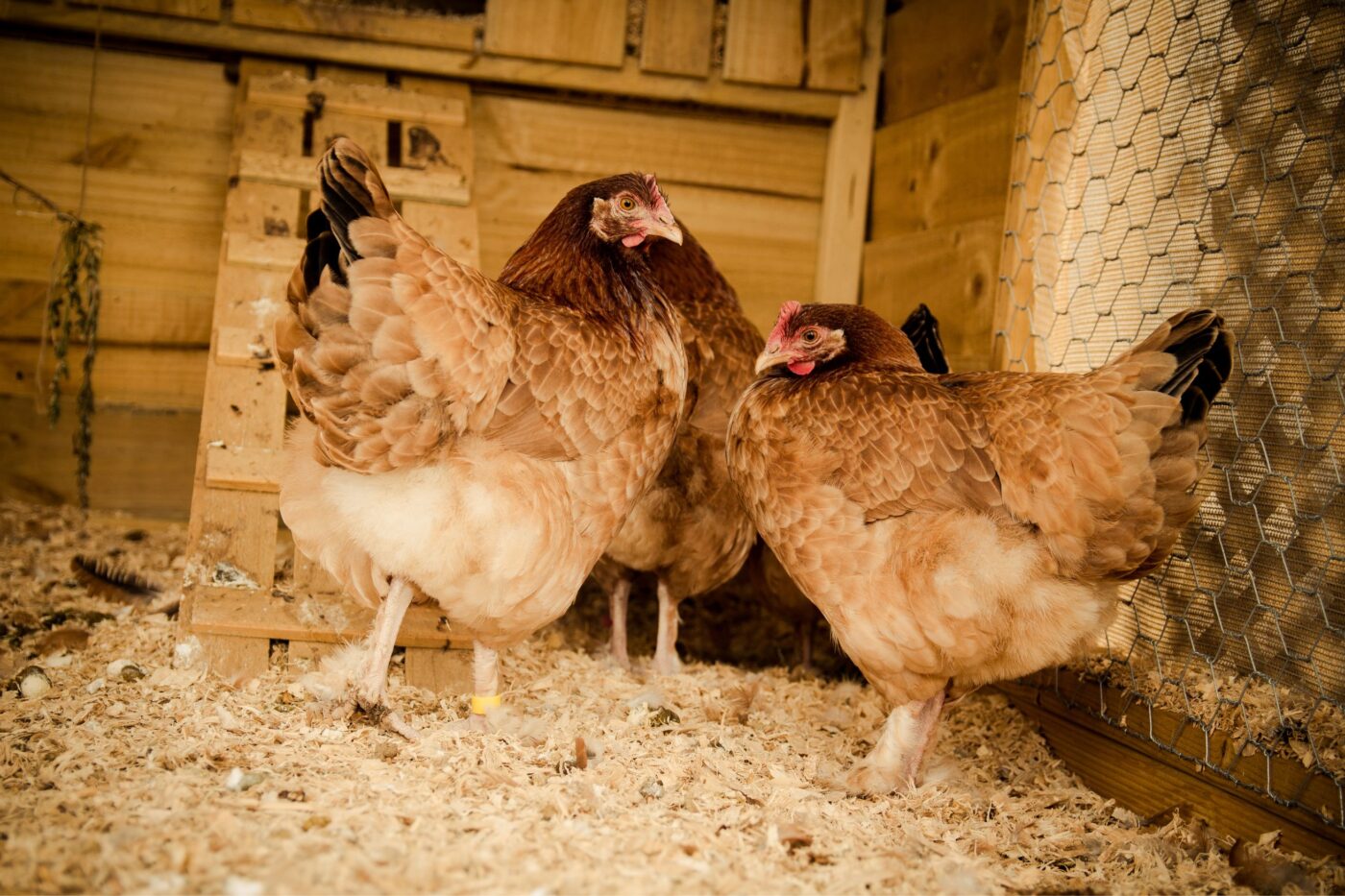
Credit: www.thehenhousecollection.com
Essential Cleaning Tasks
Keep your chickens happy and healthy with regular coop cleaning. The coop needs several essential tasks done regularly. We’ll tackle these tasks one by one. Below, find the key actions for maintaining a clean chicken coop.
Fresh Bedding
Chickens require a comfortable and clean area to rest. Dirty bedding can harbor bacteria and parasites. Aim for weekly changes of bedding to keep the space clean. Use absorbent materials like straw or wood shavings. Remove old bedding, compost it, and replace it with fresh, clean material.
Nesting Boxes
Nesting boxes are crucial for egg laying. These should stay clean to prevent diseases and keep eggs clean. Clean nesting boxes once a week. Remove any dirty bedding, wipe the boxes, and add new, clean bedding.
Feeders And Waterers
Feeders and waterers should be cleaned daily. Leftover food and dirty water can lead to disease. Empty old food and water daily. Wash feeders and waterers with soap and water. Rinse well before refilling with fresh feed and clean water.
Remember, a clean coop means happy chickens and quality eggs. Follow these tasks for a well-maintained chicken habitat.
Seasonal Considerations For Coop Cleaning
Cleaning your chicken coop isn’t just a one-time event; it’s a process influenced by the shifting seasons. To maintain a healthy, fresh environment for your chickens, it’s crucial to recognize the unique demands each season brings. In this segment, we delve into seasonal considerations for coop cleaning. Learn the best practices for keeping your coop in top shape, no matter the weather.
Preparing For Winter
Winter brings a need for extra insulation and warmth for your feathered friends. A thorough cleaning before the cold sets in is critical. Here’s how to prepare:
- Remove soiled bedding: Replace it with fresh, dry straw or shavings for insulation.
- Sanitize surfaces: Use a vinegar solution to clean perches and nesting boxes.
- Check for drafts: Seal any cracks to keep the coop warm and dry.
- Limit moisture: Dry conditions help prevent frostbite and respiratory issues.
Summer Cleaning Challenges
In the summer, heat and humidity create a different set of issues. Address these challenges to ensure a comfortable coop:
- Increase ventilation: Open windows or use fans to circulate air.
- Manage pests: Look out for mites and lice that thrive in warm conditions.
- Regular cleaning: Replace the bedding often to control odors and bacteria.
- Provide fresh water: Make sure chickens have access to clean water at all times.
By tailoring your cleaning schedule to the season, you set the stage for happy, healthy chickens year-round.
Tools And Supplies For Efficient Cleaning
Cleanliness in a chicken coop is crucial for healthy poultry. Frequent cleaning prevents diseases. The right tools and supplies make this task easier and more effective.
Protective Gear
Safety first! Before starting, protect yourself:
- Gloves: Shield hands from dirt and bacteria.
- Mask: Avoid inhaling dust and feathers.
- Apron: Keep clothes clean.
- Boots: Protect feet from moisture.
Cleaning Agents
Choose eco-friendly and non-toxic products:
| Type | Use |
|---|---|
| Soaps | Safe for all surfaces. |
| Deodorizers | Eliminate odors. |
| Detergents | Cut through grease and grime. |
Disinfection Methods
Killing germs is vital:
- Use a vinegar solution for natural disinfection.
- Apply commercial disinfectants for deep cleaning.
- Steam cleaning for chemical-free sanitation.
Managing Waste From The Coop
Keeping your chicken coop clean is vital for your flock’s health and your sanity. A major part of this chore involves managing the waste generated by your feathered friends. Not only does this maintain a hygienic environment, but it also prevents pests and diseases. Let’s dive into how you can turn coop waste into garden gold and dispose of it safely.
Composting Chicken Manure
Composting chicken manure is an eco-friendly solution that benefits your garden. This process turns waste into a nutrient-rich fertilizer. Here’s a simple guide:
- Collect the manure and bedding material.
- Place them in a compost bin or a designated composting area.
- Mix green waste, like kitchen scraps, with the manure for balance.
- Turn the pile every few weeks to aerate and speed up decomposition.
- Allow 6 to 9 months for the manure to fully compost before using it.
Proper Disposal Techniques
Sometimes composting isn’t an option. In such cases, you must know the proper disposal techniques for chicken waste. Here’s what to do:
| Method | Description |
|---|---|
| Trash Disposal | Seal in biodegradable bags and discard with regular trash. |
| Municipal Waste | Contact local waste management for guidelines on animal waste. |
| Professional Services | Hire a waste removal service that handles farm animal byproducts. |
Note that local regulations on waste disposal vary, so always check with authorities.
Integrating Cleaning Into The Chicken Care Routine
Maintaining a clean chicken coop is crucial for the health and happiness of your feathered friends. Regular cleaning prevents the buildup of harmful bacteria and parasites, keeping your chickens in top pecking order. Integrating cleaning into your routine ensures this task is manageable and keeps your coop in tip-top condition. Here’s how to involve everyone and set a schedule that works.
Involving The Whole Family
Engaging family members in coop maintenance teaches responsibility and the importance of caring for animals. Turn cleaning chores into a fun activity with these tips:
- Assign age-appropriate tasks to each family member.
- Create a colorful chore chart for tracking.
- Reward teamwork with a family treat after a job well done.
Setting A Sustainable Schedule
Establishing a routine that fits your lifestyle is key for consistent coop upkeep. Consider these points when creating your schedule:
| Task | Daily | Weekly | Monthly |
|---|---|---|---|
| Refreshing Water | X | ||
| Removing Waste | X | X | |
| Checking for Pests | X | ||
| Deep Cleaning | X |
- Adjust the frequency of tasks as needed.
- Keep a calendar in a visible location.
- Remain flexible and update the schedule with seasonal changes.

Credit: morningchores.com
Conclusion
A clean coop promotes healthy chickens and overall farm hygiene. Aim for a weekly tidy-up and a thorough monthly cleaning. Remember, the effort invested in your coop’s cleanliness directly affects your flock’s welfare. Keep these tips in hand to ensure a happy, productive brood.
Happy farming!
